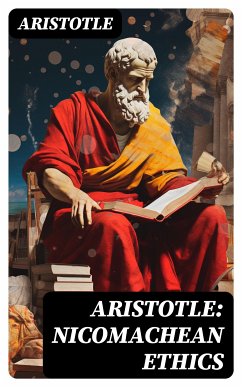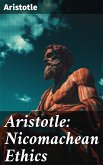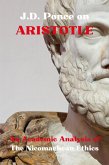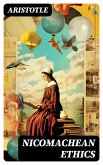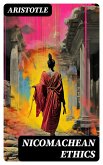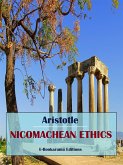Aristotle's "Nicomachean Ethics" serves as a foundational text in moral philosophy, delving into the nature of the good life and the cultivation of virtue. Written in a clear, dialectical style that intertwines argumentation with practical examples, Aristotle explores the concepts of happiness (eudaimonia) and moral character through a lens of virtue ethics. The text is not only a reflection of the philosophical milieu of Hellenistic thought but also a response to Socratic ideals, offering a systematic approach to ethical behavior that emphasizes the importance of habit and rationality in achieving moral excellence. Aristotle, one of the most influential philosophers in Western thought, wrote this seminal work as a guide for his son, Nicomachus, blending personal insight with philosophical inquiry. His extensive studies in various fields, including biology, politics, and metaphysics, inform his ethical considerations, imbuing them with a comprehensive view of human nature. This intimate correspondence captures Aristotle's intention to merge theoretical knowledge with practical application, making the work a vital resource for ethical reflection. "Nicomachean Ethics" is highly recommended for anyone interested in understanding the roots of ethical thought and the complexities of human motivation. Its relevance persists in contemporary discussions of morality, virtue, and the quest for a meaningful life, making it an essential reading for students, philosophers, and anyone seeking to navigate the intricacies of ethical living.
Dieser Download kann aus rechtlichen Gründen nur mit Rechnungsadresse in A, B, BG, CY, CZ, D, DK, EW, E, FIN, F, GR, H, IRL, I, LT, L, LR, M, NL, PL, P, R, S, SLO, SK ausgeliefert werden.
Hinweis: Dieser Artikel kann nur an eine deutsche Lieferadresse ausgeliefert werden.

